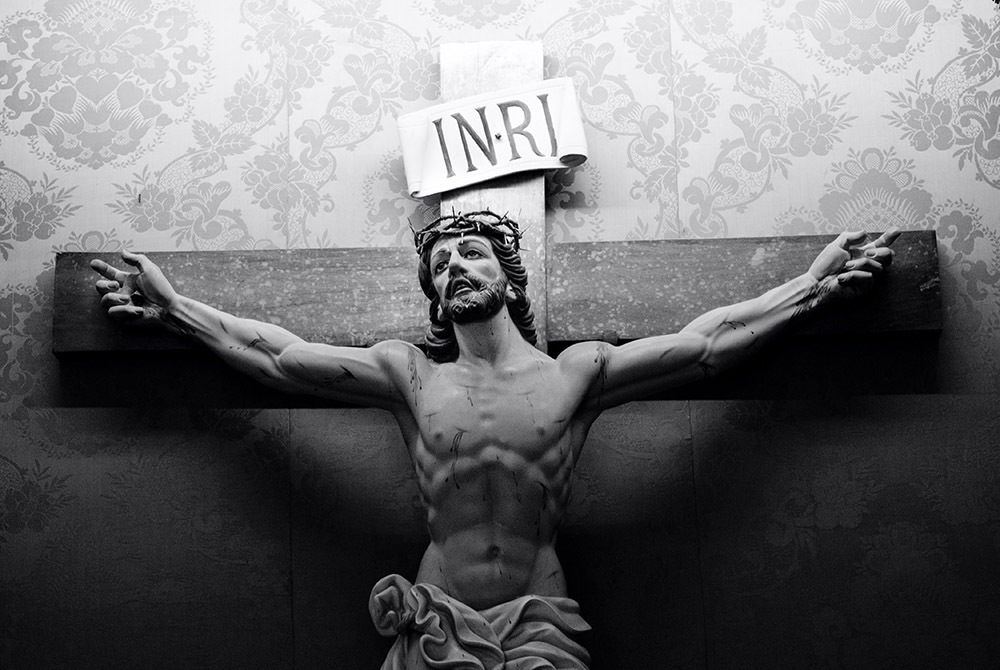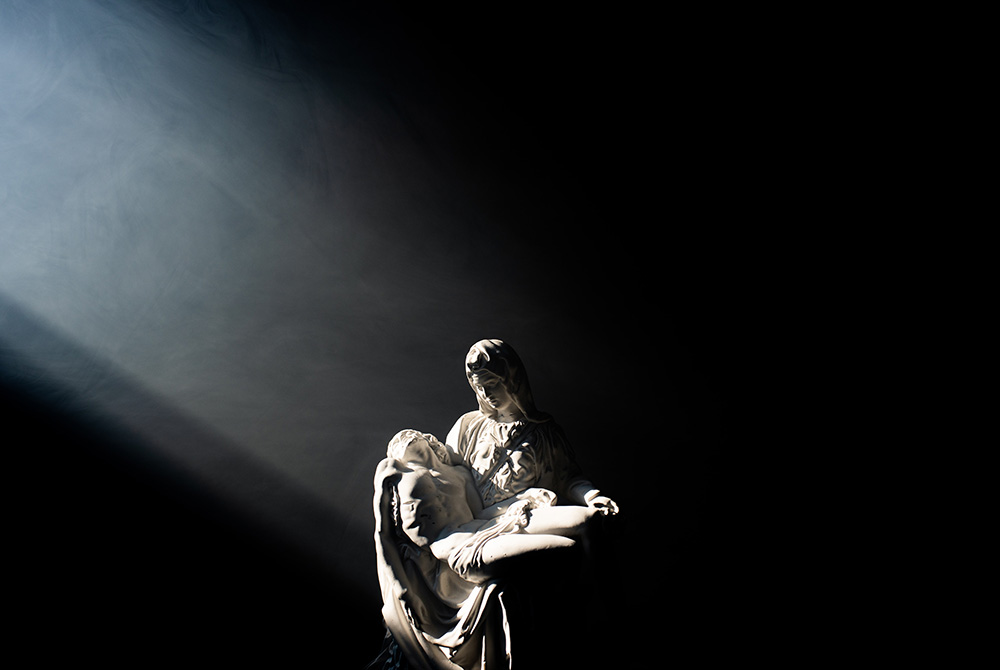
(Unsplash/Enrique Vidal Flores)
"They've closed the chapel at Brideshead, Bridey and the Bishop; Mummy's requiem was the last mass said there. After she was buried, the priest came in — I was there alone. I don't think he saw me — and took out the altar stone and put it in his bag; then he burned the wads of wool with the holy oil on them and threw the ash outside; he emptied the holy water stoup and blew out the lamp in the sanctuary and left the tabernacle open and empty, as though from now on it was always to be Good Friday. I suppose none of this makes sense to you, Charles, poor agnostic. I stayed there till he was gone, and then, suddenly, there wasn't any chapel there any more, just an oddly decorated room. I can't tell you what it felt like. You've never been to Tenebrae, I suppose?"
"Never."
"Well, if you had you'd know what the Jews felt about their temple. Quomodo sedet sola civitas. … It's a beautiful chant. You ought to go once, just to hear it."
—Cordelia Flyte and Charles Ryder, speaking over dinner at the Ritz Grill in Brideshead Revisited
I love everything about this passage. The image of the tabernacle "open and empty" harkens back to Augustine's resolution of the issue of theodicy: evil is an absence. The endearing condescension of the words "poor agnostic." The recognition that once stripped of its sacraments and sacramentals, the chapel was now just an oddly decorated room. The reference to the lament of the Jews in Jeremiah that is sung at Tenebrae. But, this year, when the idea of absence and emptiness are pronounced in ways they never have been, when Catholics have had to foreswear the very sacraments that make us and keep us Catholic, this year it is that lament — Quomodo sedet sola civitas — that strikes home: Like Jerusalem, we feel alone.
Good Friday is about loneliness because death is about loneliness. What do we fear about death except the abysmal loneliness it seems to confer when looked at from this side of the abyss. Relationships with those we love, with people upon whom our sense of well-being and purpose depends, these relationships are ended, utterly, by death. We do not need much in the way of imagination to identify with Jesus' cry "My God, my God, why have you abandoned me?" God did not come down and save his own from death. The dread of impending solitude we experience as we sit with a loved one who is dying is usually accompanied by a wish similar to that of Jesus on the cross: Why is God not coming down and saving my mother or father or brother or friend? "Remember, Man, that thou art dust and unto dust thou shalt return!"
This year, death stalks us all in a way most of us have not experienced. This horrible virus, for which we have neither vaccine nor cure and which turns our own auto-immune systems against our lives, is moving across the earth like a plague of old. In our highly individualistic American culture, we have had to undertake communal action, more precisely inaction, abiding by stay-at-home orders when possible and by standards of social distancing when venturing forth is unavoidable. For us Catholics, this has created a special burden as we are deprived of the sacramental life that sustains us and defines us: What does it mean to be a Catholic, what does it mean to be a church, when we cannot gather for the Eucharist? We, of all people, are defined by our understanding of the communal nature of grace and that understanding is derived from and nurtured through the centuries by liturgy.

(Unsplash/Grant Whitty)
Few modern Americans are very good at learning to bear their crosses and this depravation of the sacraments is a cross for us all. Nonetheless, the call coming from some conservative Catholics to ignore the urgings of public health officials and have Mass on Easter is grossly irresponsible. Janet Smith, formerly a professor of moral theology at Sacred Heart Seminary, has started an effort to petition the bishops, asking them to effectively ignore the stay-at-home orders that are preventing this pandemic from killing hundreds of thousands more people. Smith has forgotten one of the earliest moral lessons in the Bible: We are our brother's keeper.
I do not know if Smith's antagonism toward the stay-at-home orders shares the libertarian impulses and economic idolatry we see in the president. More likely, she wants to exhibit the kind of muscular Catholicism that R.R. Reno has manifested at First Things. But, it is a faux-muscular Catholicism, not the genuine article. Last month, Boston Cardinal Sean O'Malley demonstrated the real thing when he led a "virtual retreat" that aired on CatholicTV. In one of the sessions, he focused on the seven last words of Jesus and he made this observation: "Help me to love the cross. Don't send me heroic crosses that fuel my vanity but humble and vulgar little crosses that I carry with repugnance." He lists a series of them, each indignity more drenched in self-abnegation than the last, each humiliation coming closer to a genuine imitation of Christ.
We feel powerless in the face of this pandemic. Jesus chose to be powerless before the Sanhedrin, before Herod, before Pilate, before history. Let us imitate him in his powerlessness, in his enduring of every humiliation and indignity, in the "humble and vulgar little crosses" that we encounter in our daily lives.
Music and liturgy dispose our hearts to enter into the mystery, on this day the dreadful mystery, at the heart of our faith. If we do not feel that total emptiness, abandonment and dread that this day offers, how much less will our Easter joy be complete? This year, we will only have virtual liturgies and music, but the musical offerings on the internet are rich.
On Good Friday, two pieces of music reduce me to tears. The first, the hymn "O Sacred Head, Surrounded," contains text attributed to St. Bernard of Clairvaux, but it is the hymn tune by Johann Sebastian Bach that really brings one's heart into the throat. Here is a performance of it sung, as it must be on Good Friday, a capella, by the choir of King's College Chapel, Cambridge.
The second is a piece of music which, if we are not in the choir, we participate in by letting our hearts be drawn into the text and the tune, Pablo Casals' haunting, luscious setting of "O Vos Omnes." Here it is performed by the group Antiphon at Buckfast Abbey.
[Michael Sean Winters covers the nexus of religion and politics for NCR.]
Editor's note: Don't miss out on Michael Sean Winters' latest. Sign up and we'll let you know when he publishes new Distinctly Catholic columns.
Advertisement





